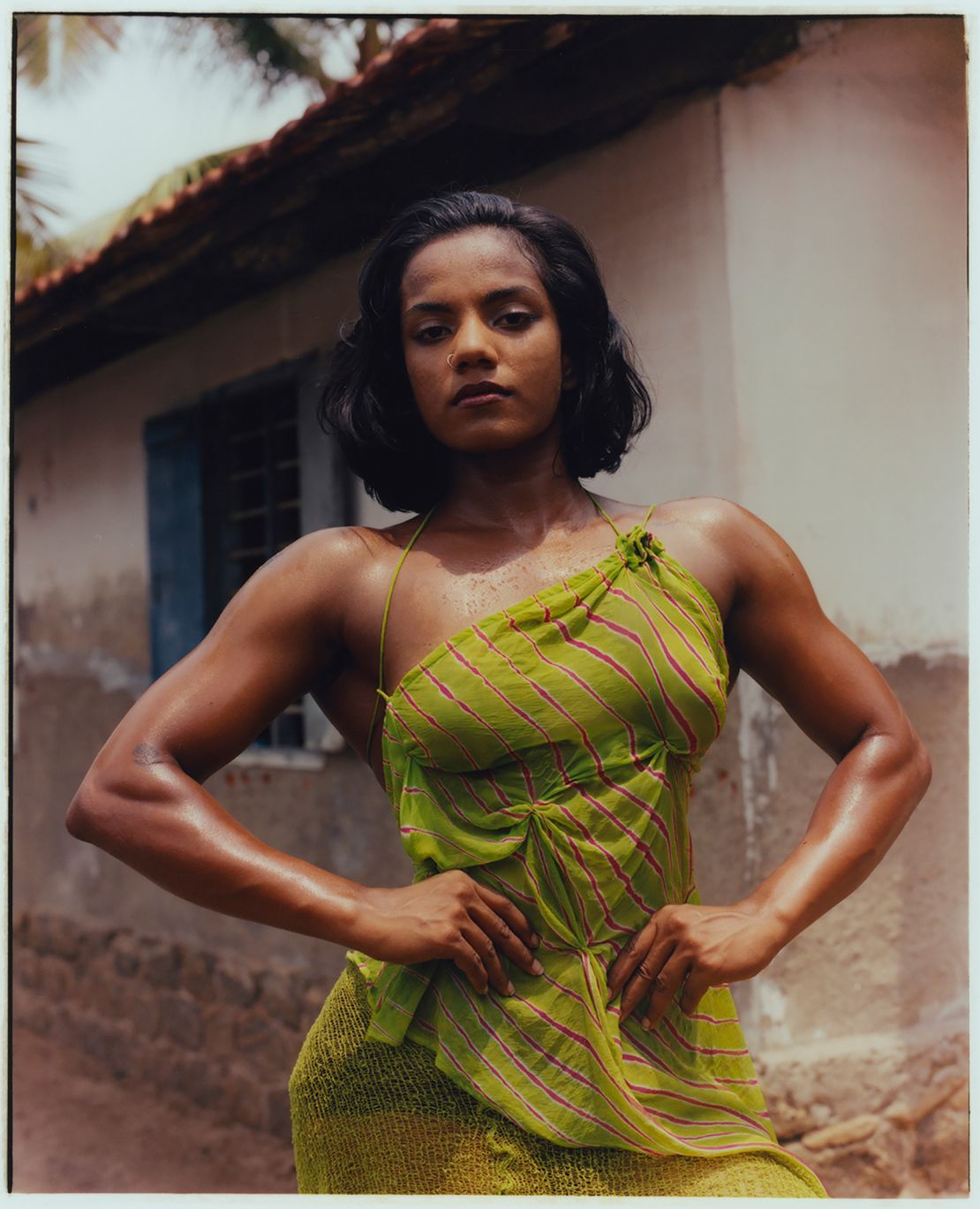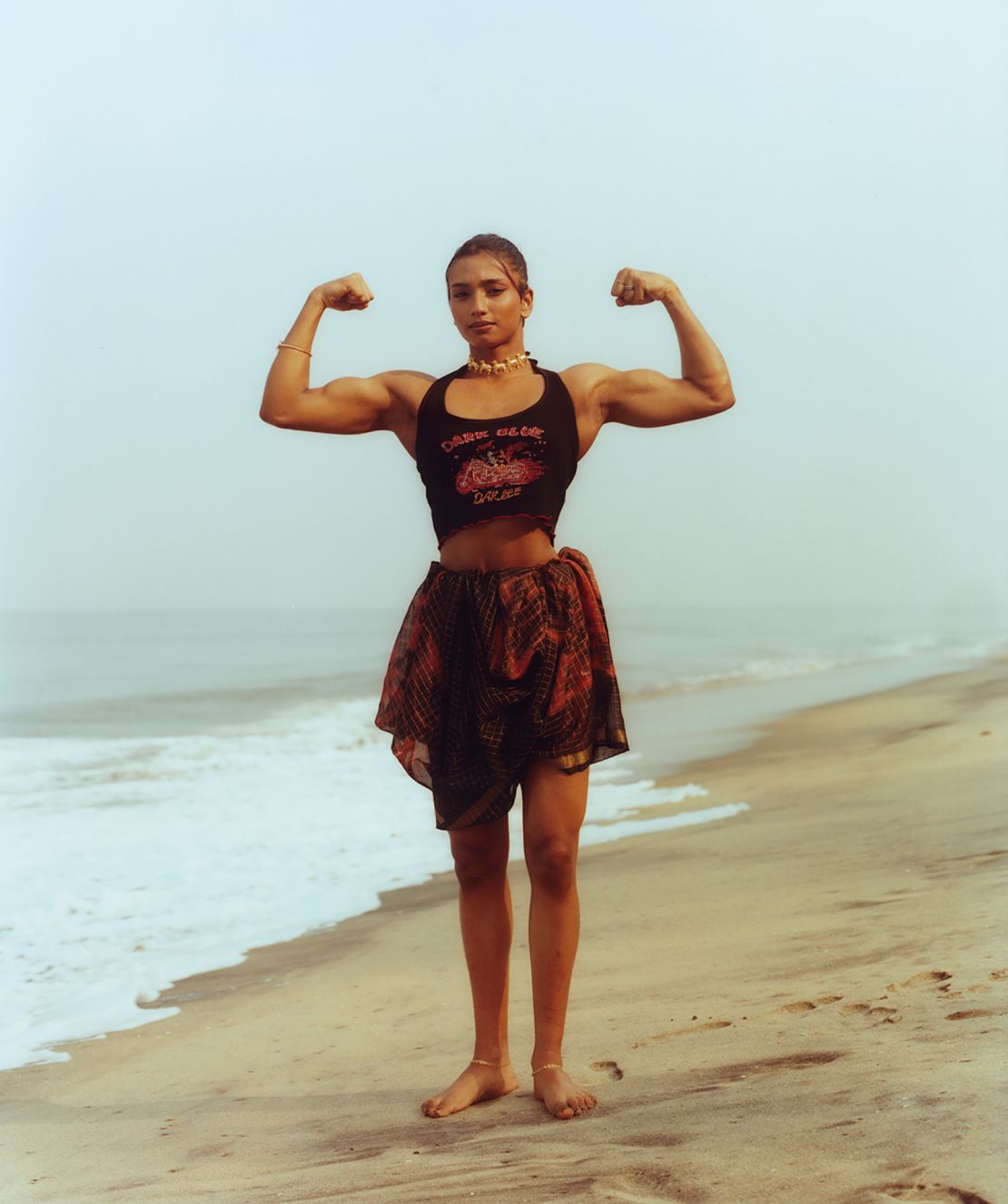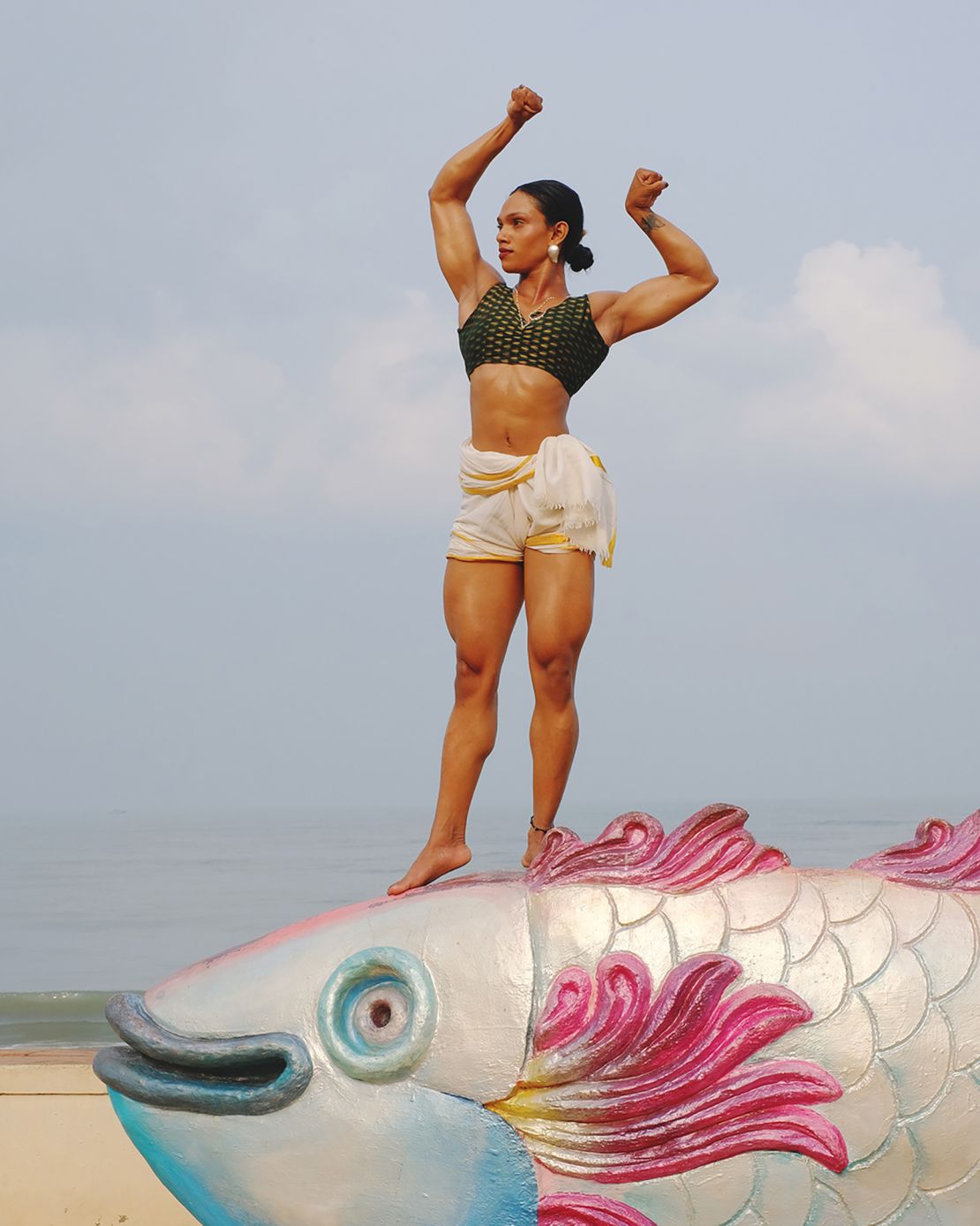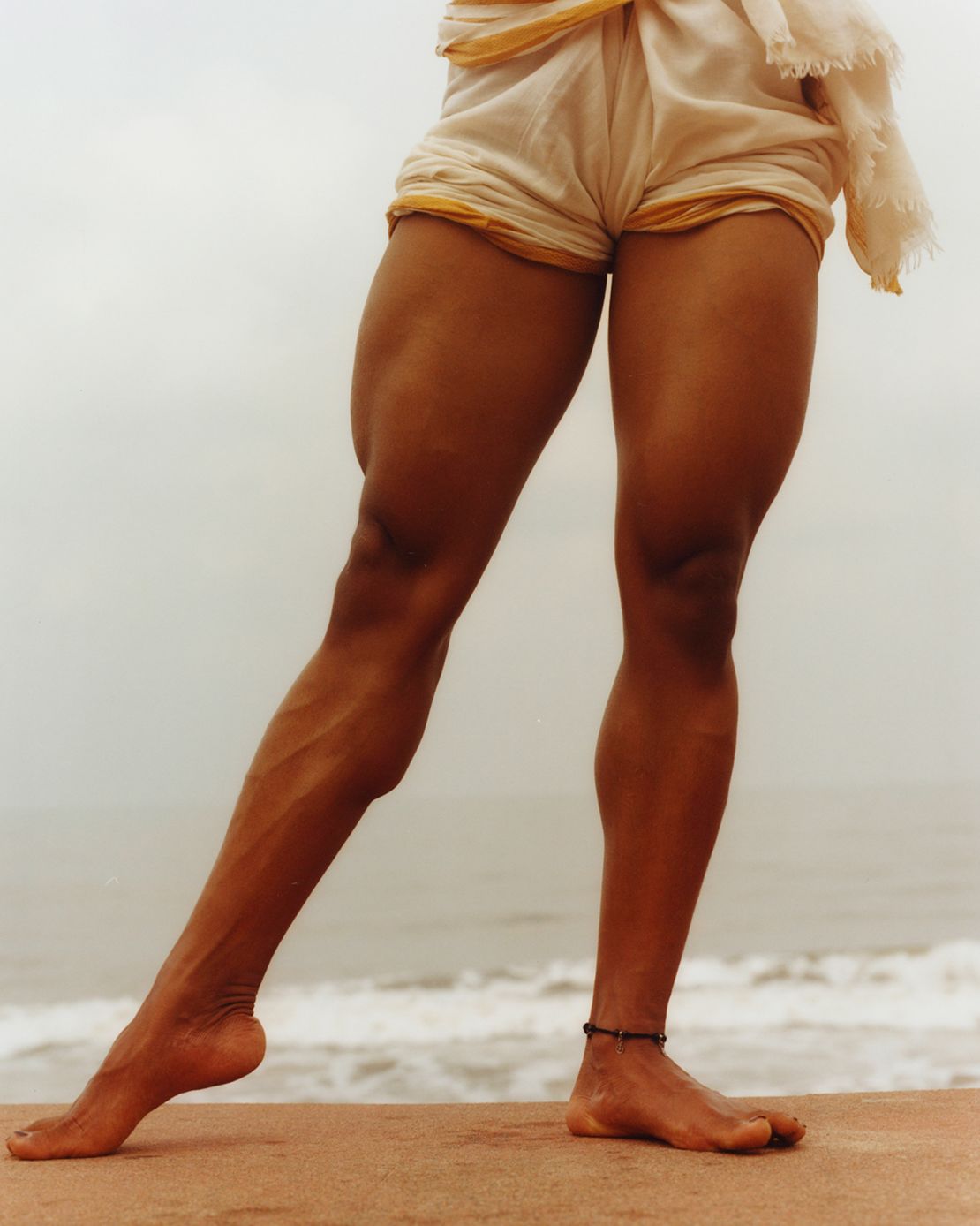In idyllic settings around India’s coastal southwestern state of Kerala, photographer Keerthana Kunnath has been capturing images of muscular women flexing their heroic forms. Amid foaming waves, palm fronds or rocky outcrops the women curl biceps, tense quads or exaggerate shoulders, exchanging gym clothes for a gauzy olive dress or feminine checkered bikini top and skirt.
But in Kerala, where the London-based photographer is from, bodybuilding is still taboo for women, who are typically expected to adhere to traditional, feminine norms. After stumbling upon one competitor’s Instagram account, Kunnath became fascinated by the female bodybuilders who have dedicated their time to the sport and defied societal conventions — and often their family’s wishes, too.
“Where we are, it’s not a very common thing,” she explained in a phone call to CNN. “I would barely call it a ‘community’ because it’s still fairly new, and there’s only a very handful of girls who are into it.”

Across India, a growing number of female competitors in the sport have achieved professional status with its governing body, the International Fitness and Bodybuilding Federation — but only in recent years. Deepika Chowdury, a former molecular biologist, became the first Indian woman to do so in 2016.
Initially interested in researching the gender-neutral martial art Kalaripayattu, which originated in Kerala, Kunnath shifted her focus after finding that the women focused on bulking instead. The bodybuilders she photographed — part of her series “Not What You Saw” — didn’t know each other well, but were aware of one another through social media and competitions.
“Every time I connected with each person, and I told them I’m going to photograph that person before you, they would be like, ‘Oh my god, I know her — her body is stunning. Her thighs are crazy,’” she said with a laugh. “It felt like mutual admiration between all of them.”
Dedication to the sport
For Bhumika Kumar, who is 22 years old and lives in the Kerala city of Kochi, training for bodybuilding competitions has fulfilled a lifelong desire to become an athlete — a dream she hadn’t been allowed to pursue as a child, she told CNN via WhatsApp. Now a gold-medalist in local competitions like Miss Kerala and Miss Ernakulam, she has transformed herself following what she described as an inactive childhood.
“My parents wouldn’t let me go out and play with other kids. Hence, I was not a very physically active kid during my school days. I was always low in stamina and strength,” she wrote.
As an adult, she found her gateway to exercise through workout videos on YouTube and joined a gym “after lots of fights with family,” she said. She felt drawn to competing professionally but also divided on whether to pursue it until a year ago. “I couldn’t stop thinking about stepping onstage,” she said. “Then I finally decided to go for it and met my coach.”
Kumar isn’t the only woman in the series whose relatives felt entitled to get involved with their personal choices. Kunnath spoke extensively with each of her subjects by phone before meeting them in person to better understand their journeys.
“A lot of them had pressure from their family and extended relatives: ‘How are you letting your daughter go into this space where they’re working on their muscles? They’re showing off their bodies,’” she said, recalling the kinds of comments her subjects had heard.
Heroic portraits
Kerala’s female bodybuilders are entering a high-pressure, male-dominated sport requiring daily commitment under coaches primarily used to training men. One of Kunnath’s subjects, 25-year-old Sandra A S, has been training for four years and now coaches aspiring bodybuilders, too. She hopes to break barriers for women competitors by winning a qualification card to compete professionally on the international stage.
As Kunnath visualized the series, she turned to the iconography of Indian goddesses that she encountered during childhood. “I still remember having these posters of goddesses in front of these serene backgrounds,” she recalled. Working with a local stylist, Elton John, Kunnath pursued non-sexualized, heroic portraits with muted pastels and flowing fabrics, departing from gym clothes or the punchy, colorful bathing suits and direct lighting of the bodybuilding stage.

“They are these extremely muscular, strong, confident girls… but still, they still have this softness to them,” Kunnath said. The photographer found the more a bodybuilder bulks, the more she is treated as a “really strong, intimidating character,” but that’s not always the case.
Since beginning the series, Kunnath has also made a point of supporting her subjects by attending their competitions and taking their professional headshots to a “thank you” for being part of the work.
“They had to carve this space for themselves,” she said. “I feel like those stories should be celebrated.”







